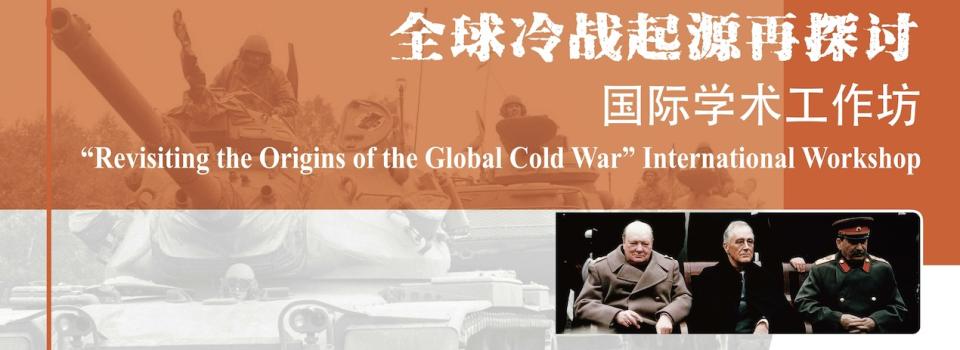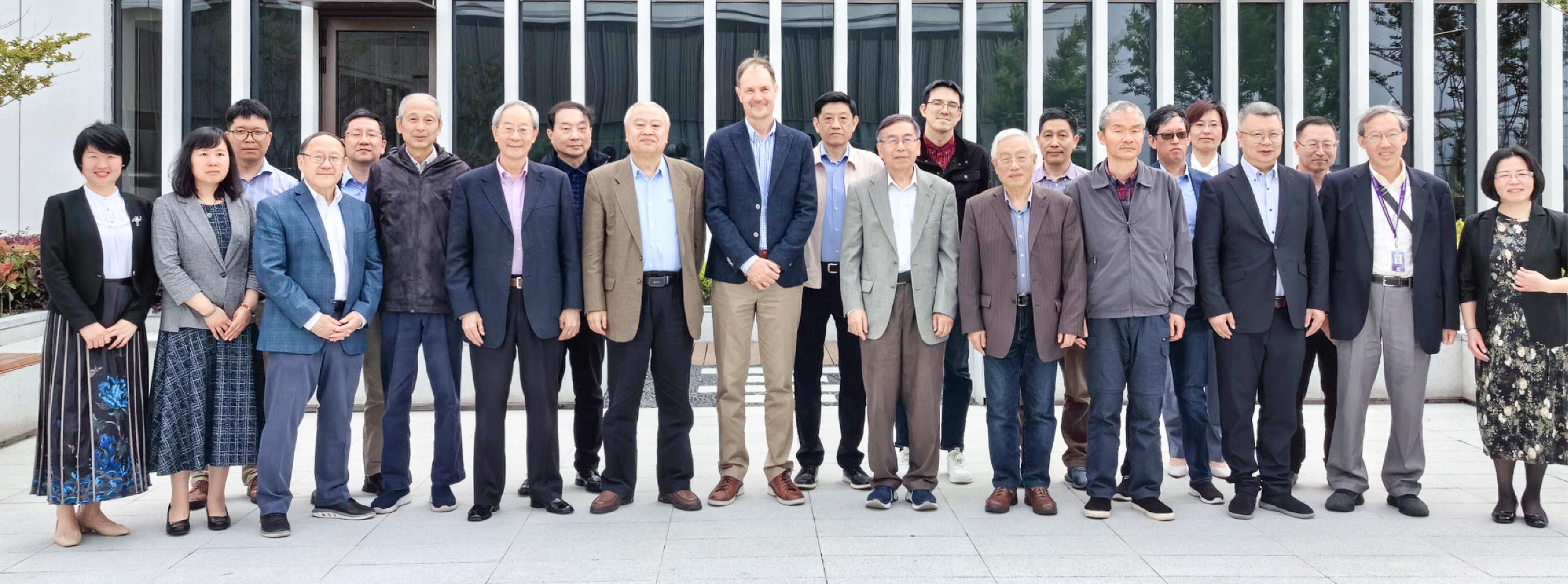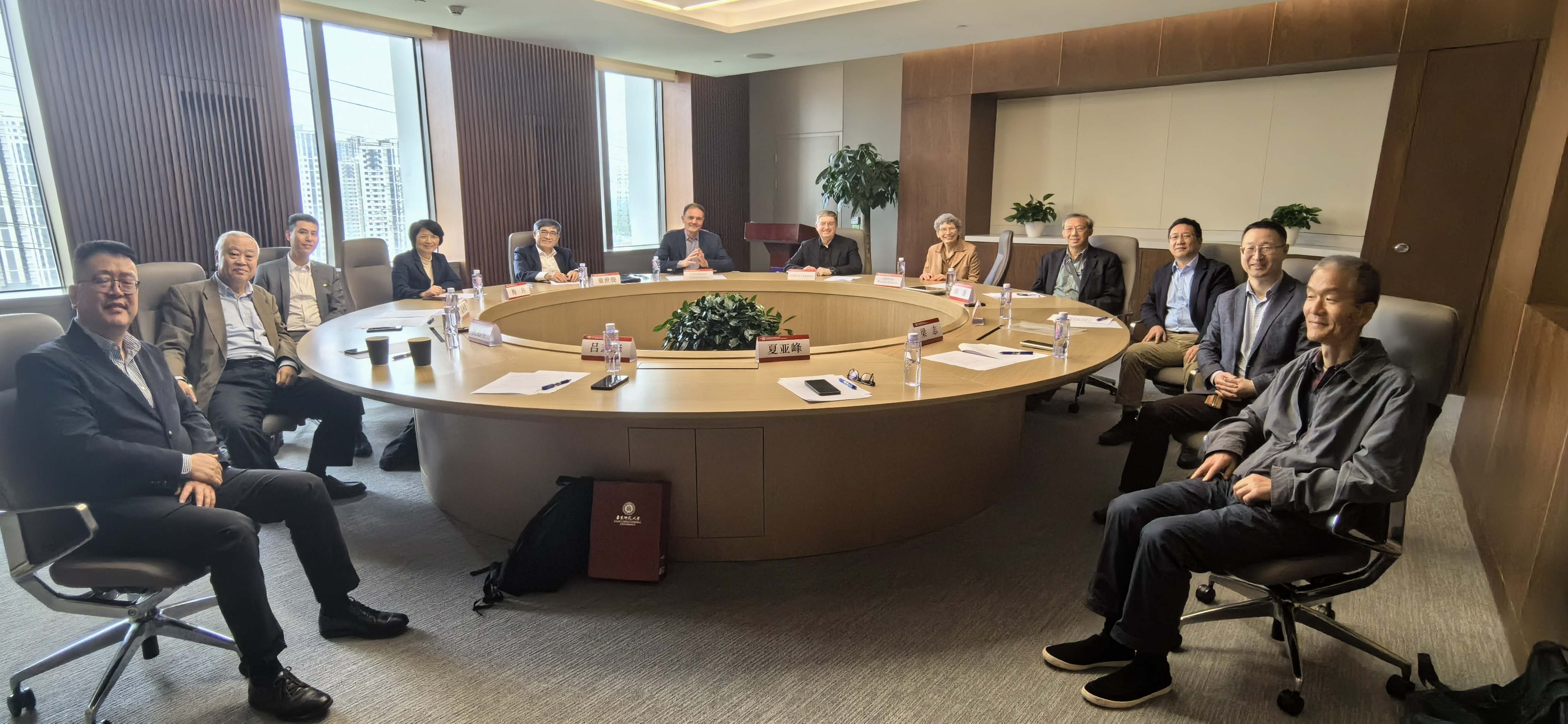Apr 25 2024
Published by
yl10038

On April 20-21, the Academy of History and Documentation of Socialism at ECNU, together with the NYU Shanghai-ECNU Center on Global History, Economy, and Culture (GHEC), hosted an international workshop on revisiting the origins of the Global Cold War.
About thirty scholars from ECNU, NYU Shanghai, Peking University, Fudan University, Shanghai University, Shanghai Normal University, Zhejiang University, Shanghai University of International Studies, Jiaotong University, CCP Central Institute of Party History Studies, Cornell University, Georgia Institute of Technology, University of Central Oklahoma, Long Island University, Johns Hopkins University attended the workshop.
Christian Ostermann, director of History and Public Policy Program at Woodrow Wilson International Scholars (WWC), visiting from Washington, attended the workshop. He met with ECNU Secretary of the Party Committee Mei Bing, NYU Shanghai Chancellor Tong Shijun, Vice Chancellor Jeffrey Lehman, and Provost Joanna Waley-Cohen, together with Professors Shen Zhihua and Chen Jian, co-directors of GHEC. They reviewed the long history of scholarly exchanges and cooperation between ECNU and WWC on Cold War history studies, and discussed future plans, such as organizing conferences and workshops, visiting scholar and student exchanges, and other academic collaborations to reestablish and enhance the scholarly partnership between ECNU, NYU Shanghai and WWC.
Professor Shen Zhihua delivered a keynote speech on the specific process through which the Cold War came into being shortly after the end of the Second World War. Instead of focusing on security policies, geopolitical factors, and ideological differences, Shen explored why and how economic issues between the United States and Soviet Union led to crucial misperceptions and misjudgments among American policymakers about Stalin’s intentions and strategic aims. Shen emphasized that while the Soviet leader’s primary motives of dealing with economic matters and his public rhetoric on important foreign policy issues were with a domestic audience as his main target, American strategic planners (and George Kennan, who wrote the “X Telegram,” in particular), policymakers, and military planners mistakenly regarded them as revelation of Stalin’s ambitions of global expansion. All this served as a vital point of departure leading up to the making and escalation of Soviet-American confrontation in Europe and other parts of the world. Professor Shen contended that, in retrospect, the global Cold War could have been avoided if Washington and Moscow had more accurately judged each other’s policy aims and actions.
Shen’s speech triggered lively discussions and debate among participants of the workshop. History is a mirror, the scholars attending the workshop believe. The lessons from the making of the Cold War therefore are of critical relevance to our efforts to identify the essence of the complicated challenges facing Sino-American relations–as well as how to manage them–in the changing world of the 21st century.




